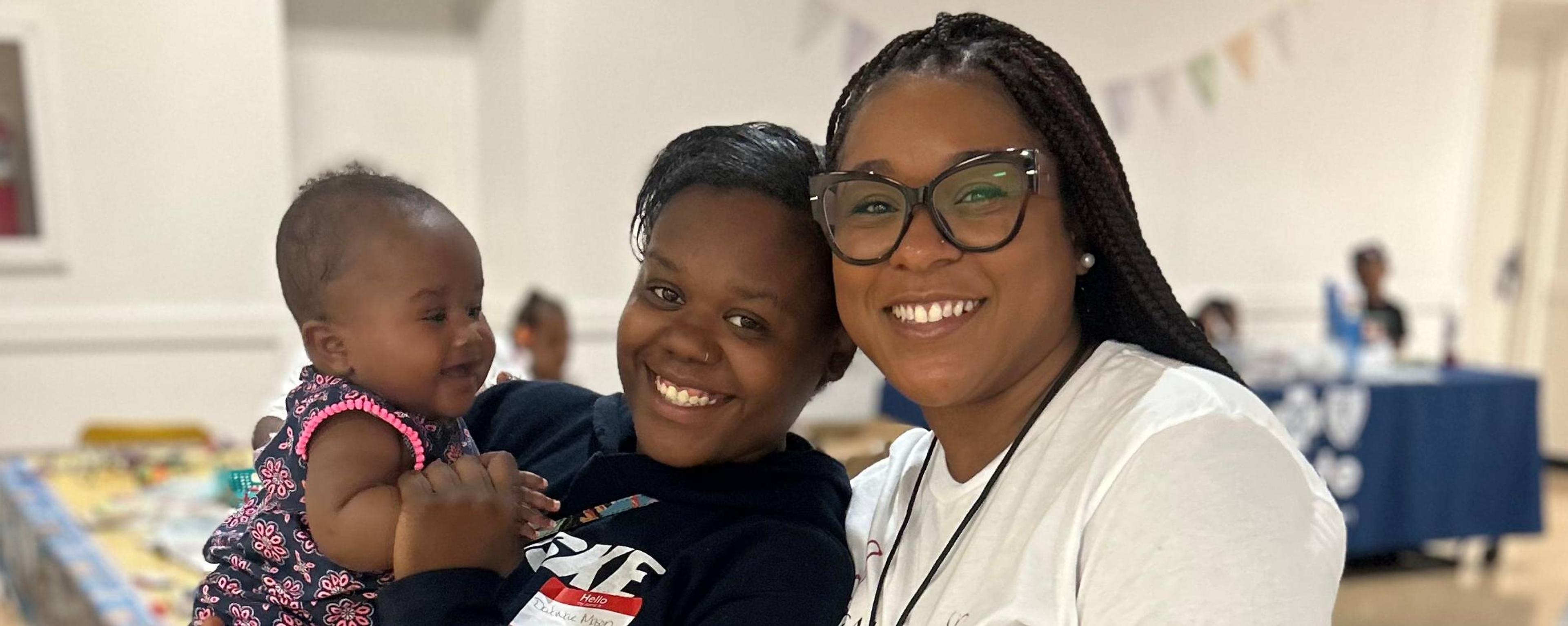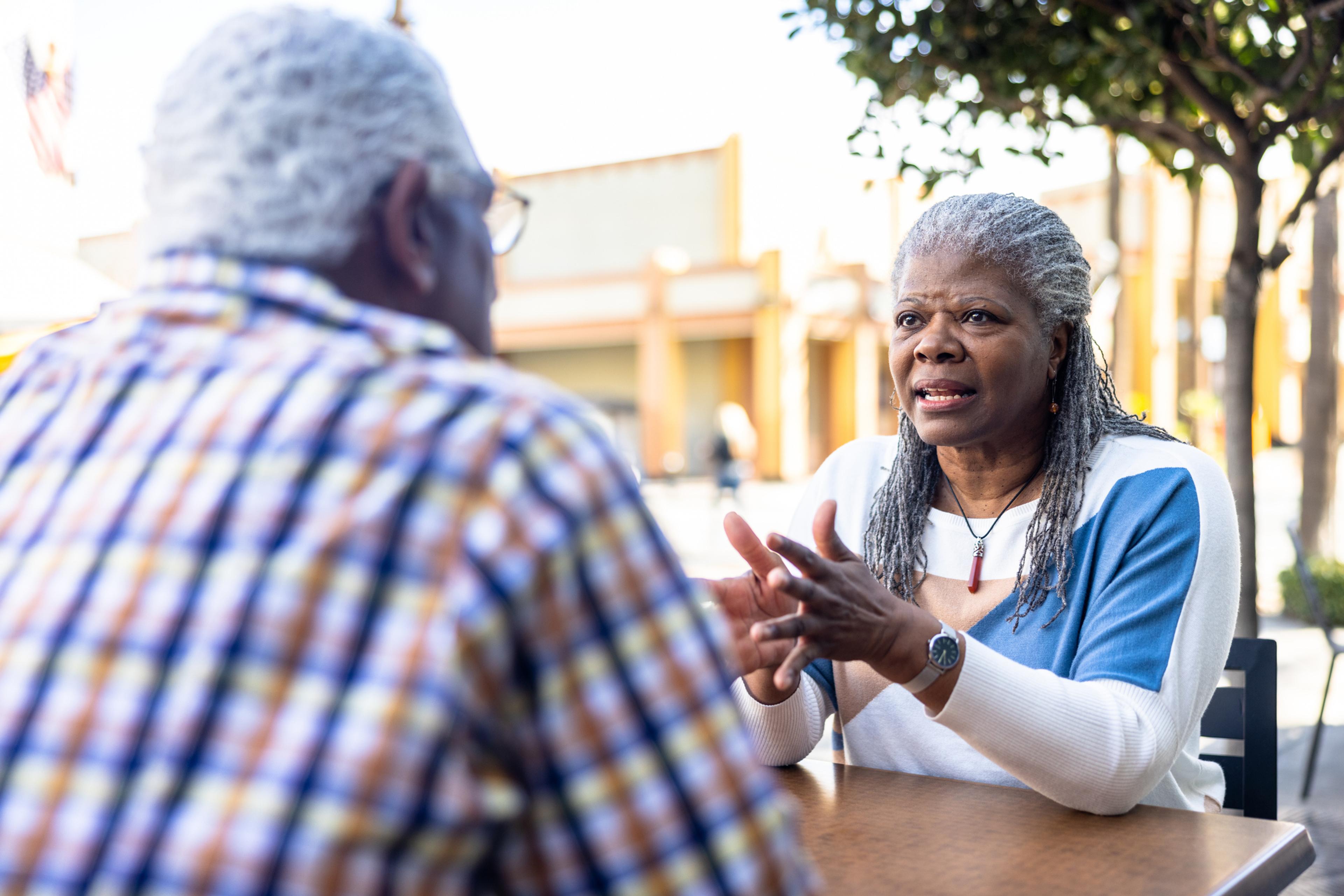Our News,Social Mission,Inclusion & Diversity,Mental Health,Minority Mental Health Month,Safety Net Grants
Planting Seeds of Hope in Pontiac’s Hispanic Community
Amy Barczy
| 5 min read
Amy Barczy is a former brand journalist who authored...
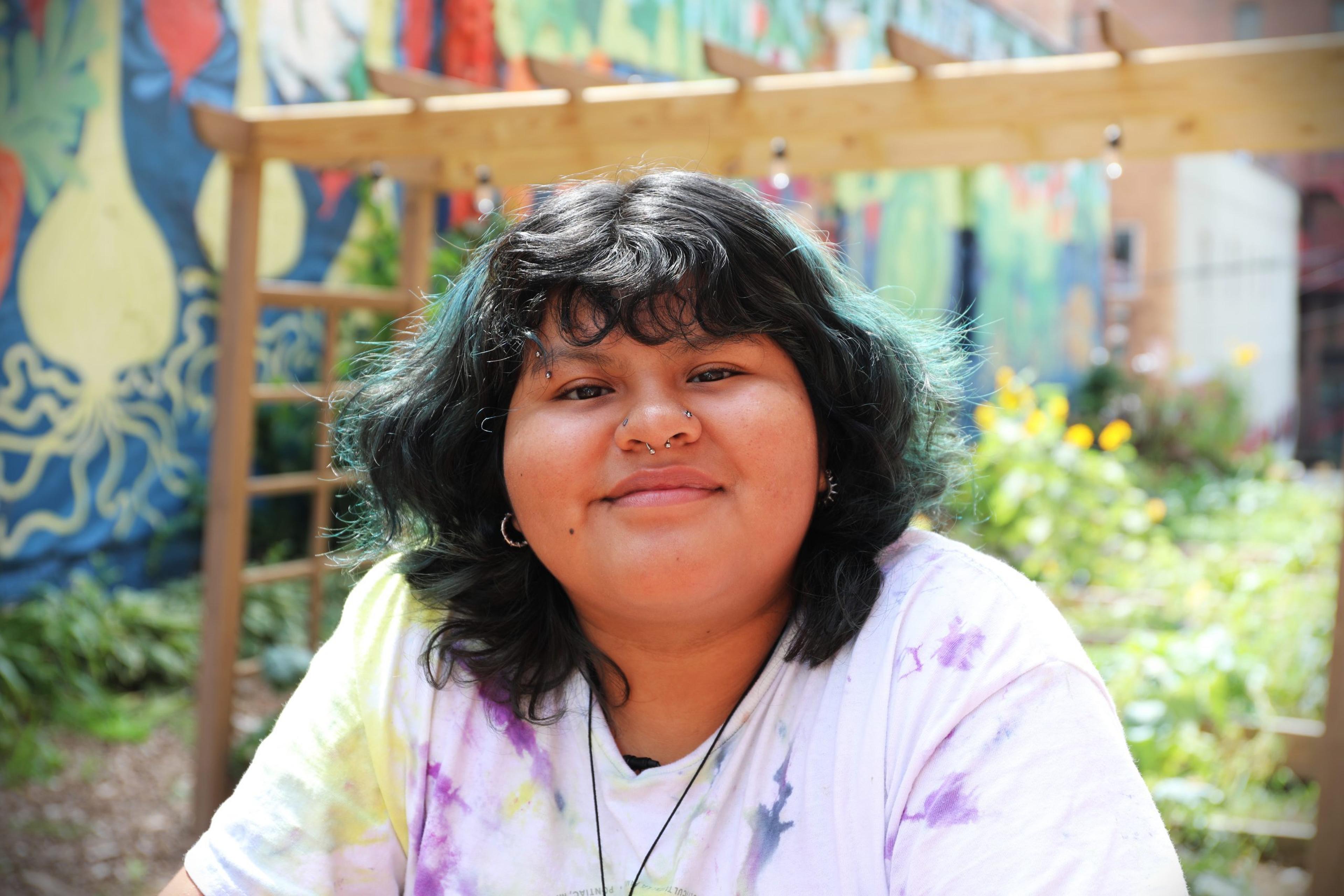
Sani Campoverde is 18. They are starting their first semester at Oakland University in Pontiac, studying psychology. But they never would have made it there without Centro Multicultural La Familia.
Two years ago, Campoverde was struggling to get through their junior year of high school. The depression that made it hard to get out of bed in the morning became suffocating when the pandemic hit. Home was now school and everything else in between.
“We’ve been stuck in our rooms for two years almost – you don’t interact with people every day. It was very hard,” Campoverde said. “I was the oldest; my mom didn’t have anyone to help take care of my brother it was hard for all of us. Having to go to school online was even worse – I felt even more alone; I didn’t feel that I had support. I started junior year, it just deteriorated. I was not doing well, I needed help.”
That summer, Campoverde found the Summer Youth Employment Program offered by Centro Multicultural La Familia. It gave them the connection and purpose that they had missed during their junior year – and helped them so much they returned the following summer as a leader.
Centro Multicultural La Familia
The Summer Youth Employment Program – made possible through a grant from the Michigan Department of Natural Resources – is just one of the offerings from Centro Multicultural La Familia.
Centro Multicultural La Familia, or the Multicultural Family Center, is a 501(c)(3) nonprofit that has independently supported Pontiac residents with wraparound services since 2007. It is funded in part by Blue Cross Blue Shield of Michigan's Strengthening the Safety Net Program. Its mission is to provide culturally competent support services to families in a holistic approach to improve their quality of life. Some of the core programs the nonprofit offers include:
- Support and advocacy for victims of crime, including domestic violence, hate crimes, human trafficking, assault and bullying
- Comprehensive mental health services
- Community resource navigation
- Life skills and citizenship classes
- Assistance with applications for Medicaid, health insurance, food assistance and child care
- Youth coaching
- Business entrepreneurship program
- Health education workshops and access to vaccines
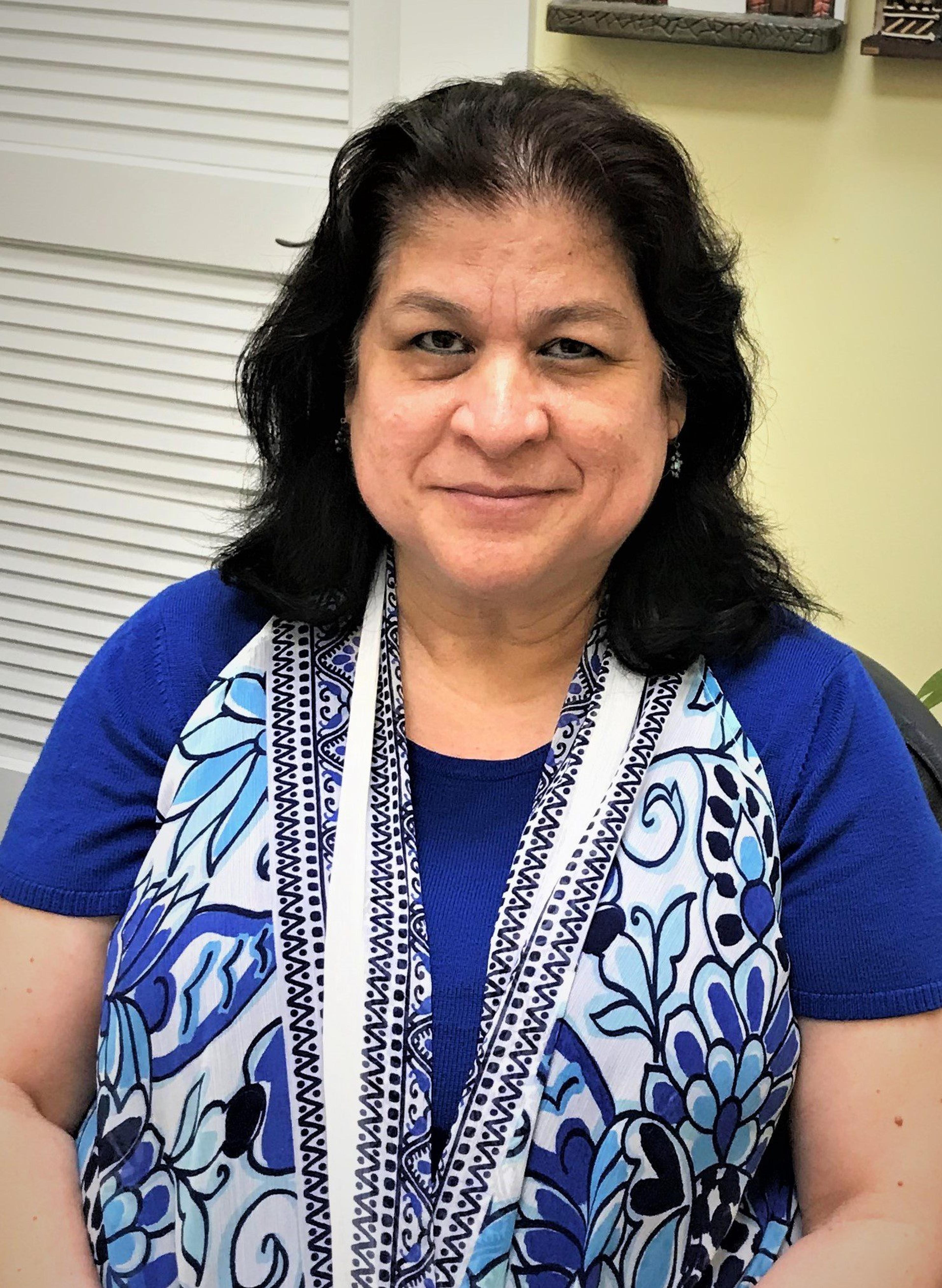
About 20% of the Pontic population identifies as Hispanic/Latino; and a disproportionate number of them are living at or below the poverty level.
“The support Centro Multicultural La Familia provides to the community in Pontiac fills the gaps for so many families,” said President and CEO Dr. Sonia Acosta. “The Latine/x population is frequently underserved, especially for mental health services. We’re working to remove barriers and stigma by offering help and connecting them to health care and community services.”
Acosta’s next challenge is to transform a former school building gifted to the organization into a community center called Healing Village, or La Villita.
Planting seeds
“Quisieron enterrarnos, pero no sabían que éramos semillas.” “They tried to bury us, but they didn’t know we were seeds.”
This phrase sits on a mural Campoverde and their peers helped to paint on a building on Paddock Street in Pontiac. It faces a community garden – Growing Pontiac – where the Summer Youth Employment Program has spent time planting, weeding and building a healing rock garden that will be used by survivors of violence and domestic violence.
To Sarah Maria Acosta Ahmad, the healing and community justice coordinator at Centro Multicultural La Familia, Sani and the youth served by the nonprofit are those seeds in their communities.
“It’s this message of hope: we’re all the seeds planted in our communities and we have the power to grow and to thrive,” Acosta Ahmad said. “These youth in our communities – they are children of survivors; children of immigrants. Children of people who have been here for generations. They are building a place to enjoy and gather and build community together.”
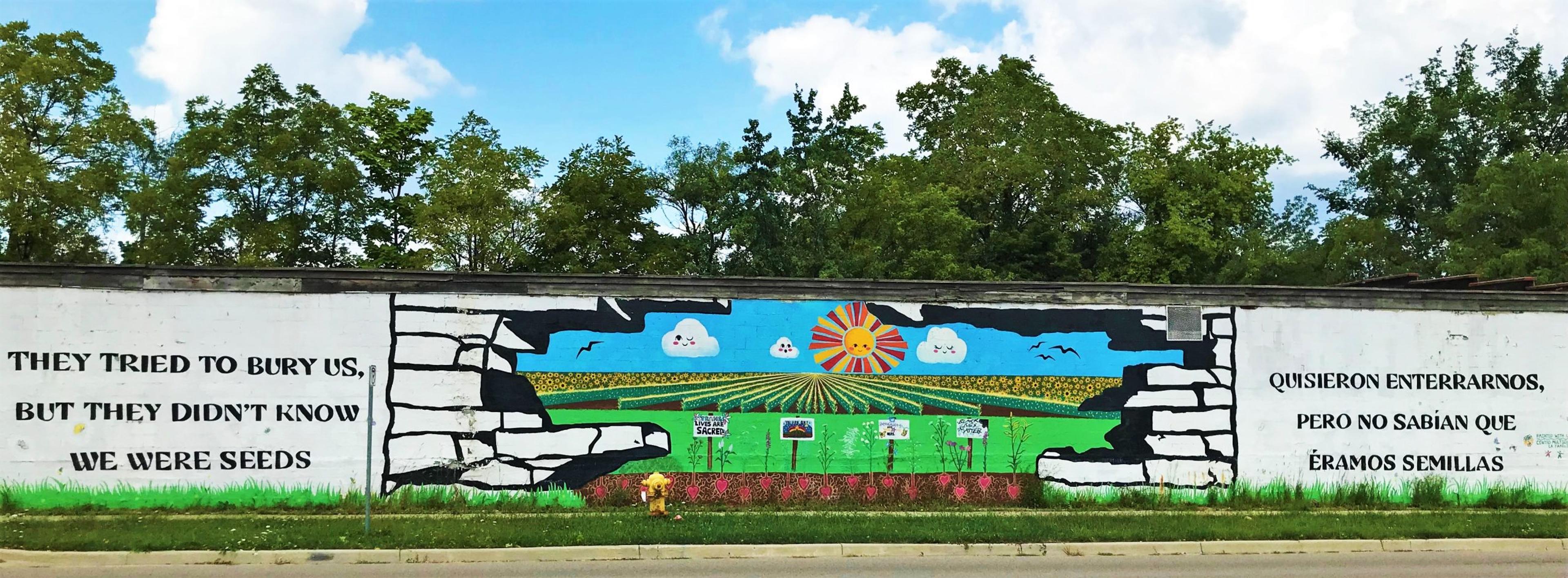
Cultural stigma
There’s cultural stigma in every community about receiving help for mental health. For many immigrant families, there is no time to think; to feel. They’re consumed with working enough to provide food to eat and to afford housing; caught in a constant grind to survive.
It’s one of the barriers Centro Multicultural La Familia seeks to overcome in Pontiac.
It’s also a barrier Campoverde overcame in their life. The child of immigrants from Ecuador, Campoverde carries trauma from feeling alone from a young age as their father was deported and their mother worked long hours.
“I had a sense of abandonment from my father. My mom was constantly working. I didn’t see her; I didn’t feel like I was loved. My family said, ‘Well, your mom gives you things.’ But at the end of the day, sometimes I want someone there at my assemblies. I want someone to make me a lunch. I want someone there when I eat breakfast. I want someone to walk me to school,” Campoverde said.
Though Campoverde was diagnosed with depression at the age of 11, their family had a difficult time accepting it.
“I know my family didn’t believe depression was real; there were just tough moments but you just keep moving forward because you still need a roof over your head and you still need food,” Campoverde said. “Because their life was, ‘I have to keep working or I’m going to end up on the streets. If I give you a house; if I give you food – if I give you the basic necessary things you need in life, you should not be unhappy.’ But in reality, there’s other things than materialistic things.”
After seeing how much Campoverde has been helped by their depression treatment, Campoverde’s family has come to understand and accept the importance of mental health.
Working with a psychologist in treatment has also inspired Campoverde to pursue psychology as a major at Oakland University.
“You have to put yourself first and have to put your mental health first,” Campoverde said.
Read more on how Blue Cross is ready to help support the community here:
- Blue Cross Strengthens Health Care Safety Net, Awarding Nearly $900,000 to Clinics
- New Corktown Health Institute Will Be a Beacon for LGBTQIA+ Inclusive Health Care
- Blue Cross Helps Clinic Keep Communities Healthy Through Pandemic
Photo credit: Blue Cross Blue Shield of Michigan

